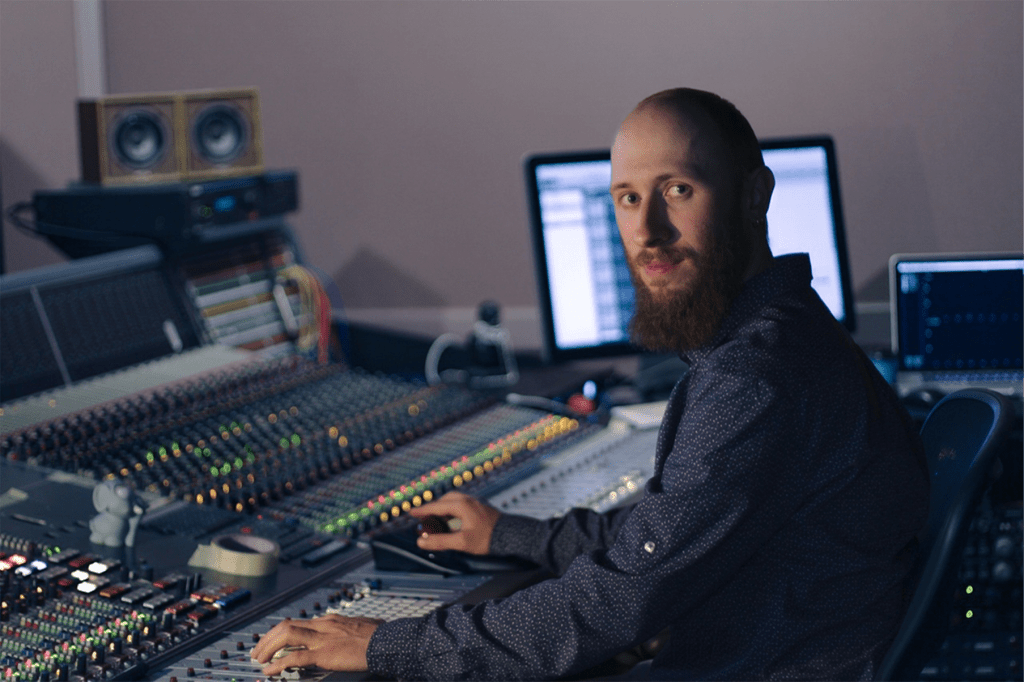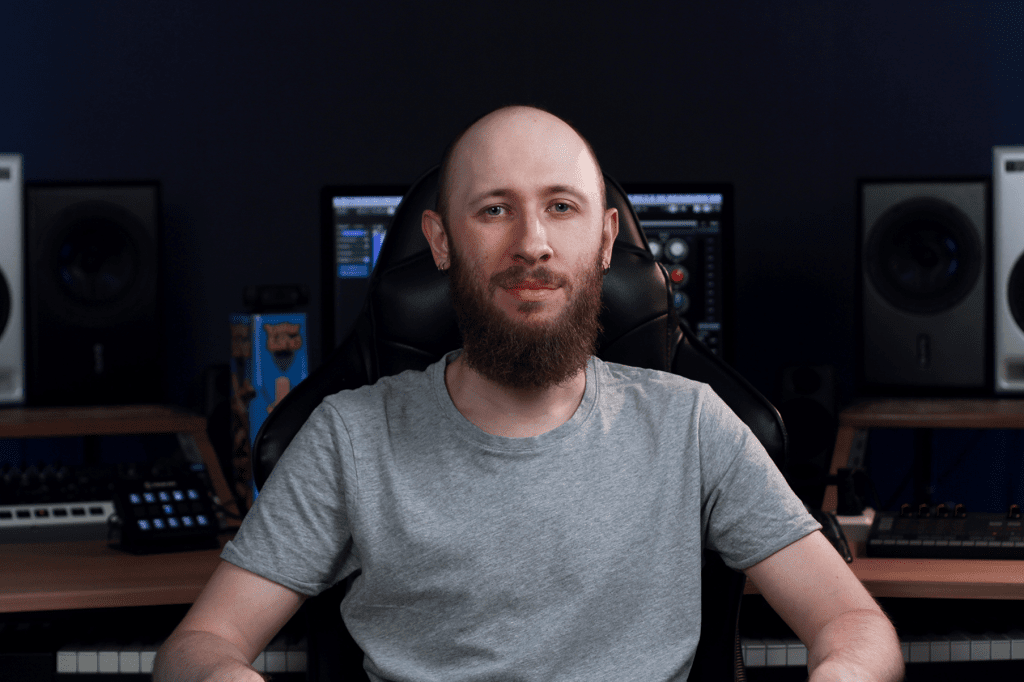The author of this article, Oleg “Yorshoff” Yershov, is a sound engineer, teacher, and video blogger from Ukraine, as well as the founder of the YORSHOFF MIX project. Oleg’s professional interests cover a wide range of topics related to sound – from recording, mixing, and mastering music and audio post-production to software development and the creation of thematic educational materials such as articles, books, manuals, and videos.

Living in an AI age, willingly or not, we’re all trying to find an answer to what I think is the most important question of our time: “What makes us human? Of course, some of you might say: “That’s easy, mate – bipedalism, language and tool-making”, referring to John Heminway’s documentary “Bones of Turkana”, and you’d be absolutely right.
But it’s not that simple anymore, is it? You’ve probably seen robots that walk on two feet, just like us. I don’t think you’ve never talked to a chatbot and thought you were talking to a human on a support line. And, of course, I’m pretty sure that almost every tool you use in your daily life has been made, or at least half made, on an assembly line by robots or automated machines. So it seems that none of the three basic descriptions of a human being are sufficient.
When we, as audio professionals, get into a new blither about mixing, we obsessively savour the tiniest nuances of tweaking attack times in compressors, phase differences between this and that filter, coloration that could be achieved by frying a couple of eggs on the million-degree heated faceplate of one of the rarest and greatest vintage tube consoles after twenty hours of non-stop operation. Sound familiar? I’m guilty of all this myself, but where’s the music here? It all sounds like data. It all sounds like resources for robots, not people.
“Who let this geezer in?” you might ask, and believe me, I’m bewildered too, because I’d rather spend another day or five ranting about the importance of knowing everything about filters, compressor settings and the ability to calculate the decay time of a reverb tail by hand on a piece of paper. Instead, it will be much more useful to take a look at the opposite – the pure:bundle, three plugins that I believe can help you become a better musician, producer and mixer.
Prowess at a craft or aptitude to do something better than others has always been considered the most outstanding merit of a human being. Nowadays we can delegate most of the tedious tasks to machines, but what are we left with? Emotions and feelings, of course. It’s not about being maudlin about good old analog times or early digital plugins or maybe even that. Emotions are a driving energy of our lives and our music, and that’s what makes us different from machines and algorithms.
But how does that relate to the plugins I mentioned earlier? The thing is, if you strip away the unnecessary controls from the tools we’ve used in the past – conventional compressors, limiters, reverb, etc. – you’re left with pure:comp, pure:limit and pure:verb. I know the word “unnecessary” in this context might be a bit of an exaggeration, but still – let’s forget for a minute all the possibilities we have in smart series plugins and more conservative tools from other vendors to answer one simple question: “Why do we need them at all?”

The answer is as simple as a poking stick: “To make our sound good”. That’s right. I suppose there are much better things to do with your life than to struggle with the attack and release times of a compressor, or to think about which reverb would be best for this or that vocal. Of course, it feels like it’s part of our job, or even our destiny, as audio people, to be plagued by these annoyances, to feel dejected or even desperate when working on a song or a mix, begging all the spirits and gods to help us get something at least listenable by the end of the day. Human feelings, right? Indeed.
But what are we trying to achieve by making music this way? To prove something to someone? If so, it’s a really sad story. Of course, eventually we learn how to write songs, how to mix quickly and efficiently, but it’s still a long way to go, and before you start dissing or cursing me, I’d like to give you some ideas on how to turn all your bad feelings about producing and mixing music into joy and confidence:
The process of creating and mixing music doesn’t have to be an endless series of technical tasks and difficulties – we’re not robots to enjoy all that. Instead, we can appreciate the streamlined workflow and exceptional sound quality of pure:limit, pure:comp and pure:verb. So can pure:bundle help us feel more human? If we can achieve a great sounding song or mix without being exhausted by hours of tedious work that’s more suited for a machine, we’ll feel satisfaction, happiness and joy, and we’ll be able to spread that energy to our family, friends and fans. What could be more human than that?